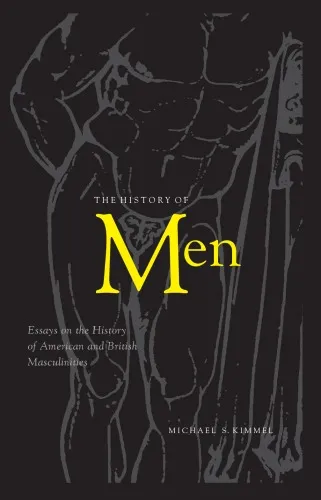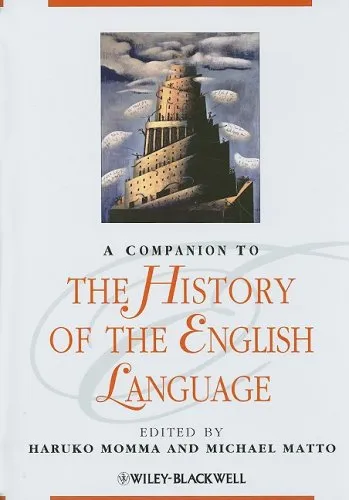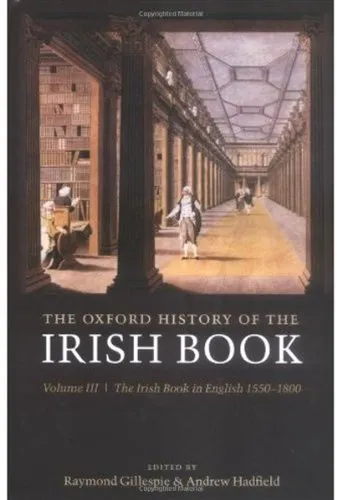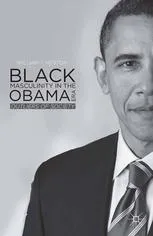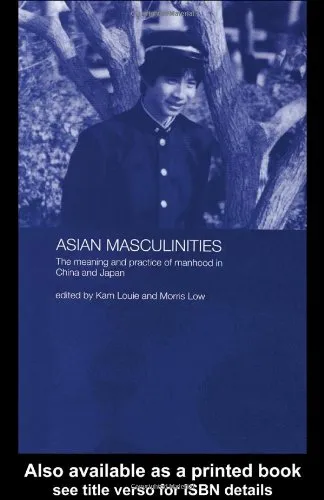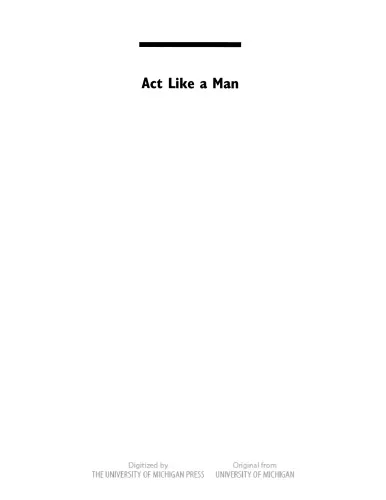The History Of Men: Essays On The History Of American And British Masculinities
4.0
Reviews from our users

You Can Ask your questions from this book's AI after Login
Each download or ask from book AI costs 2 points. To earn more free points, please visit the Points Guide Page and complete some valuable actions.Related Refrences:
Introduction to "The History Of Men: Essays On The History Of American And British Masculinities"
"The History Of Men: Essays On The History Of American And British Masculinities" by Michael S. Kimmel serves as a vibrant and intellectually stimulating exploration of changing notions of masculinity across American and British societies. This collection of essays dives deep into historical narratives, cultural contexts, and sociological insights, bringing to light the evolution of "what it means to be a man" over centuries. Through careful research, Kimmel provides readers with nuanced perspectives on how gender norms and expectations have shaped—and been shaped by—societal transformations, economic changes, and political movements.
Masculinity, as Kimmel argues, is not a static or innate trait. Instead, it is a relational concept that has been constructed and reconstructed depending on the cultural and historical moment. In this book, Kimmel bridges the academic with the accessible, presenting ideas that are both scholarly and understandable, ensuring that readers from all backgrounds can engage with the material. By intertwining sociological theory with historical evidence, Kimmel paints a detailed picture of how power structures and gender dynamics intersect under the broad umbrella of masculinity.
Detailed Summary of the Book
At its core, this book traces the historical contexts in which masculinities emerged, developed, and transformed. Drawing on an array of primary and secondary research, Kimmel examines the interplay between men’s lives and broader socio-historical forces in both the United States and Britain. The essays chronicle everything from the hypermasculine ideals promoted during wartime to the quiet revolutions in gender expectations during the post-industrial period. Topics such as fatherhood, male friendships, the industrial revolution, and shifts in patriarchy are examined with depth and precision.
The collection moves beyond individual experiences to include cultural and institutional analyses. Kimmel sheds light on how institutions like the military, workplaces, and educational systems have historically influenced and policed masculinity. He also discusses the contradictory pressures men face—for instance, being strong yet sensitive or authoritative yet empathetic. By comparing British and American masculinities, the book highlights the ways in which cultural differences can inflect shared historical trends.
Key Takeaways
- Masculinity is a socially constructed concept that evolves based on historical and cultural contexts.
- The pressures and expectations placed on men are often rooted in broader societal institutions and historical developments.
- Understanding the history of masculinity can help us interrogate contemporary gender norms and challenge harmful stereotypes.
- American and British masculinities have shared touchpoints but are culturally distinct in notable ways.
- The deconstruction of traditional masculinity paves the way for more equitable and inclusive gender dynamics.
Famous Quotes from the Book
"Masculinity is not something men are born with, but something society teaches them to perform."
"Gender is a ubiquitous organizing principle—it structures our desires, our ambitions, and our very sense of self."
"To talk about masculinity is to talk about power and how it is distributed across relationships."
Why This Book Matters
Understanding the history of masculinity is not just an academic exercise—it is a vital undertaking to better comprehend our present and shape a more inclusive future. As gender roles continue to evolve, Kimmel’s exploration of historical masculinities provides crucial context for the challenges and opportunities that lie ahead. By unpacking the myths and stereotypes surrounding manhood, this book encourages readers to think critically about the limiting impacts of traditional masculinity on men themselves and on society at large.
Kimmel’s work is particularly significant in an era when conversations around gender and identity are gaining prominence. It speaks to anyone interested in history, sociology, or gender studies, but it also reaches beyond the academy. Activists, educators, and lay readers alike will find Kimmel’s insights valuable as they strive to understand the broader forces shaping gendered experiences. The book’s comparative approach, highlighting both American and British masculinities, also offers a rich lens for cross-cultural understanding in today’s globalized world.
Ultimately, "The History Of Men" is more than just a collection of essays—it is a call to action, urging readers to critically evaluate how historical narratives of masculinity continue to echo in our lives and to imagine new possibilities for humanity beyond the confines of rigid gender norms.
Free Direct Download
You Can Download this book after Login
Accessing books through legal platforms and public libraries not only supports the rights of authors and publishers but also contributes to the sustainability of reading culture. Before downloading, please take a moment to consider these options.
Find this book on other platforms:
WorldCat helps you find books in libraries worldwide.
See ratings, reviews, and discussions on Goodreads.
Find and buy rare or used books on AbeBooks.
1591
بازدید4.0
امتیاز0
نظر98%
رضایتReviews:
4.0
Based on 0 users review
Questions & Answers
Ask questions about this book or help others by answering
No questions yet. Be the first to ask!
